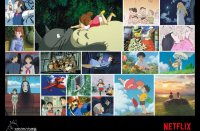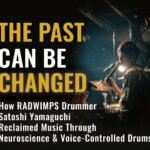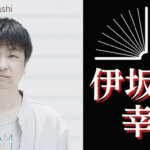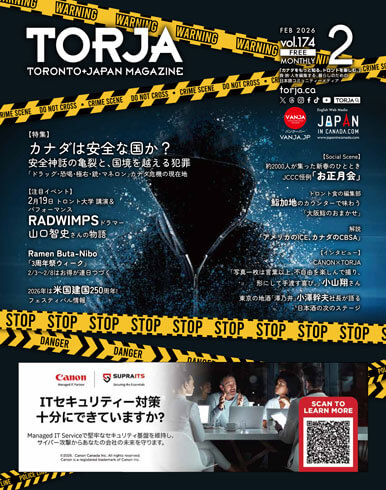There is Osamu and Nobuyo, the husband and wife, who work low-pay, precarious jobs; there is Aki, the older daughter who works at a host club, and Shota, the younger son; finally, there is Hatsue, the old granny matriarch whose pension and home contributes to the whole family’s survival.
They are poor and live in a decrepit old home in the suburbs. Inside, the sheer amount of unordered materiality is overwhelming: their home is filled with scavenged junk and relics that they have redeemed from inutility; and this private collection completes this odd family.[1] As the title of the film suggests, their activities are not always in the legal sphere — they unrepentantly engage in petty crime to make ends meet.
Their insouciant attitude towards petty crime extends to the “kidnapping” of Yuri, a small female child in their neighbourhood who they find left out on the balcony during one freezing night. Coaxing her with food, they take her back home, where she is eventually absorbed into the family. For Yuri, this new “family” is more of a family for her than her real biological family, which consists of a single mother who neglects her for an abusive relationship with her boyfriend.
Kore-eda, a director known for his family dramas, said in an interview that his intentions in filming Shoplifters was to “explore what makes a family.” Kore-eda applies the filmic lens onto the family as a sociological reality to examine its contemporary workings, and through this process, the very definition of the family is put into question.
The facade of the three-generation family once constructed, Kore-eda dismantles this structure before our very eyes in the latter part of the film. Granny Hatsue dies and she is buried unceremoniously in a hidden place beneath the floorboards. Shota and Yuri go to the supermarket for supplies; Shota is caught shoplifting by the police, and Shota and the police return to the “home” where they encounter Osamu, Nobuyo, Aki, and Yuri attempting to escape, abandoning Shota.
Once in the police station, we find out their real identities: No one in this “family” is joined together by blood ties. They are pulled together by chance and by necessity, like a temporary alliance; however, they are still able to perform as a family unit, as can be seen in the numerous intimate scenes throughout the film. There is no doubt that their performance is genuine.
In an interview, Kore-eda describes the reasons for portraying the Japanese family in this manner:[2]
“The traditional concept of family was already being dismantled or destroyed in Japan, and 3/11 just made it obvious that was happening. I believe you can no longer interpret the true value or purpose of family based on the antiquated traditional tropes of Japanese society. In ‘Shoplifters,’ I was looking at three generations living together, because that’s typically what you’d find in a Japanese household. But I wanted to play with that, and show that even within those terms the nuclear family is undergoing a permanent change.’ ”
…
“He remembered back to 2002, when he was just starting to audition children to play the lead characters in ‘Nobody Knows.’ ‘At that time, all the kids we saw were living in close proximity to their grandma or grandpa or both, and you could hear it in their vocabulary,’ he said. ‘There were children who really loved it. But based in my experience over the last 15 years looking at families specifically in the Tokyo area, that has ceased to be the case. More elderly people are living alone. It’s very rare these days to see a family where the children have that kind of close contact with their grandparents, or live in traditional family structures.’ ”
These family formations (however imagined) cannot be divorced from a certain sociological context; while I do not wish to digress too much into this topic, one can look towards research like Precarious Japan by anthropologist Anne Allison, which explores the situation of Japanese society. It is a place where in place of lifetime employment there is precarious labour, in place of a booming bubble economy there is a recession, and in place of population growth and optimism, there is aging and decline as the horizons of the future, the horizons of possibility, disappear.
In this context of precarity and the decline of previous forms of social solidarity I position Shoplifters as a potential image of the future. It is Kore-eda’s hypothesis of new emergent family formations in Japan. However, it is not a conservative eulogy of this form. Shoplifters demonstrates a possible transformation of the nuclear family. In this transformation, the cultural concept of “family” is slowly being wrested from its biological roots (we are family because we are biologically related) and it is coming into contact with new meanings of “family” (we are family because of how we perform as a family, because of the feelings we have for each other, because of certain benefits of being family etc.).
To quote Kore-eda:
“ ‘One of my major life realizations,’ Kore-eda said, ‘is that having a child is not enough to make you a parent.’ Family, he agreed, is an idea that you have to reaffirm every day. ‘I think my films reflect my own sense of crisis about that, and this film — in which the binding agent is ultimately neither the blood relationship nor the time the Shibatas spend together — brings that crisis to a head.’ “
To quote the most interesting line above again:
“Family, he agreed, is an idea that you have to reaffirm every day.”
[1] I am reminded of Benjamin’s essay on book collecting, “Unpacking My Library: A Talk about Book Collecting”: “I am not exaggerating when I say that to a true collector the acquisition of an old book is its rebirth… To renew the old world—that is the collector’s deepest desire when he is driven to acquire new things…”














































